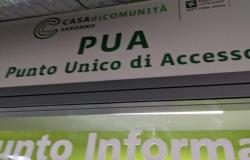The USA and Germany further accelerate their support for Kiev and come out into the open, following the line already traced by Great Britain, France and Canada. Green light for Ukraine which in the war that has been going on for over 2 years will be able to strike the territory of Russia with the weapons that the governments of Washington and Berlin have sent to repel the offensive of Vladimir Putin’s forces, which is increasingly pressing in the area of Kharkiv.
A qualitative leap in the fight against the heir army of the Red Army, the one made official by Berlin and Washington, which arrives while in Prague the NATO Foreign Ministers reiterate their unconditional and long-term support for Kiev and from Moscow the former president Dmitry Medvedev returns to evoke the nightmare of nuclear war. But it is precisely on the use of weapons against Russia that the compactness and unity of purpose claimed by the allies has given way to different positions.
Italy says no
Italy “will not send any military to fight against the Russians on Ukrainian territory, nor can Italian weapons be used to strike on Russian territory: our Constitution prevents it. We are not at war with Russia, we defend Ukraine’s right to freedom and self-determination”, reaffirmed the Foreign Minister, Antonio Tajani, clarifying however that the prudent position of the Meloni government does not mean in any way to question Italian support for Kiev.
On the contrary Italy, who will lead the international reconstruction group for Ukraine next year, will do everything to allow Kiev to repel the Russian offensive, assured the head of the Farnesina, according to whom the ultimate objective must be to achieve military stalemate on the battlefield so as to force Putin to sit at the negotiating table. For this we need weapons, starting with the Samp/T systems, the flagship of our air defense which Italy has already sent to Kiev and which, according to Tajani, could send again.
The red line for Rome
The use of Italian weapons against Russian territory is a real red linehighlighted the Foreign Minister – and so did the Defense Minister Guido Crosetto – explaining that there is a commitment on the Ukrainian side to prevent Italian weapons from ending up striking across the border.
And turning to Secretary General Jens Stoltenberg, who in Prague said he was “pleased that the allies are easing restrictions on the use of weapons” and underlined how the right to self-defense also includes the right to strike “legitimate military targets” in Russia, Tajani appealed for caution: “I spoke at length with Stoltenberg, I reiterated our position to him and he understood it perfectly. It is not NATO that decides how Italian or other countries’ weapons are used in Ukraine. Every The country is free to confront Kiev and decide how its weapons are used.”
Stoltenberg himself, who at the end of the meeting in the Czech capital set the target of annual military aid to Kiev at “at least 40 billion euros”, confirmed how Ukraine’s path is inevitably directed towards joining NATO and that the allies are “determined to make progress” in this regard. A sign of attention to the requests of President Volodymyr Zelensky which was also welcomed by the US Secretary of State, Antony Blinken, according to whom “our objective now is to build a bridge to bring Ukraine closer to NATO”. And ahead of the expected July summit in Washington he said that from that summit “a solid support package for Ukraine will emerge.”
The US turning point
The Secretary of State himself then confirmed the news that had begun to circulate insistently in the American press, namely that the administration of President Joe Biden had given the green light to the use of American weapons in Russia.
“In recent weeks, Ukraine has asked us for permission to use the weapons we are providing to defend against this aggression, including against Russian forces who are massing on the Russian side of the border and attacking Ukraine from there. This request went straight to President Biden who approved the use of our weapons for that purpose.” A green light therefore, but with some limitationsas the Wall Street Journal wrote, according to which the Ukrainians will be able to use American weapons to hit the bases in Russia from which Kharkiv is attacked, but they will not be able to use the Atacms long-range surface-to-surface missiles.
Moscow’s reaction
Almost inevitably the Western change of pace caused a reaction from Moscow. “We know that they are already trying to carry out attacks on Russian territory with American-made weapons,” Kremlin spokesman Dmitry Peskov said, arguing that this was evidence of American involvement in the conflict. The comment by the former vice president of the Russian Security Council, Medvedev, according to which “the Russian nuclear threat towards Ukraine is not a bluff or intimidation” was disorganized, as increasingly often happens.
The international agenda for June
From Prague, the international community’s gaze is already turned to the next commitments which will inevitably once again see Ukraine among the central issues. From the meeting of 10 June in Berlin on the reconstruction of the country to the G7 in Puglia up to the meeting in Switzerland on 15 and 16 June, Kiev expects concrete signals from the West, especially now that weapons on the front are in short supply. But the Peace summit, strongly desired by Zelensky, immediately lost one of its most awaited protagonists.
China, in fact, will not be there as confirmed by the spokesperson of the Foreign Ministry, Mao Ning, according to whom Beijing’s requests have not been accepted. “China has always insisted that an international peace conference should be approved by both Russia and Ukraine, with equal participation of all parties, and that all peace proposals should be discussed in a fair and equal manner. Otherwise it will be difficult for China to play a substantial role in restoring peace,” she said.
“Everyone should participate in a peace conference, peace is a precious good that goes beyond the West-East alignments and that we must defend. If China does not participate in my opinion it is making a mistake”, commented Tajani, hoping for a Beijing’s action to convince the Russian Federation to sit at the peace table. Moscow, he warned, must not delude itself into a division of the West. “They can rest assured, there are no divisions within NATO. Don’t have hopes that do not exist and are totally unfounded – commented the head of the Farnesina – NATO is united, the NATO countries are united and another will start from Washington message of great unity”.





